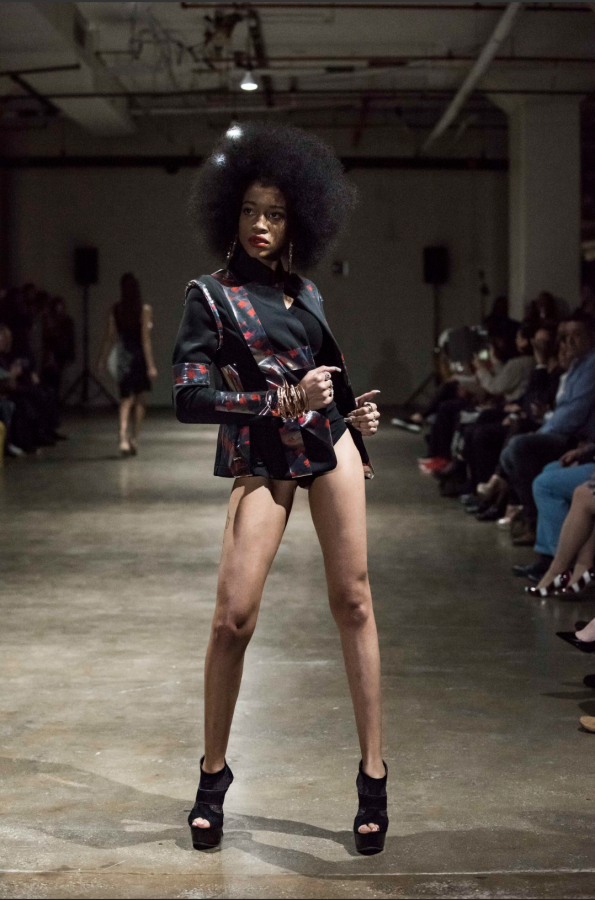South Sudan may be the world’s worst country in terms of girls’ access to education. Part of the problem stems from the cultural stigma surrounding menstrual periods and lack of resources, forcing girls to stay at home regularly. They often fall behind in classes, drop out and marry early, a pattern that model and former refugee Mari Malek wants to end. As the founder and president of Stand for Education, she seeks to improve access to educational resources for South Sudanese youth, especially girls. Malek hosted the KOllision fashion show in Brooklyn on Saturday to raise money for her nonprofit organization.
The event began with a #HERstory talk moderated by Malek. Sitting on the panel were activist and model Diandra Forrest, Swedish actress and writer Karin Agstam, entrepreneur Hamacha Donadi and COPE NYC founder and historian Vida Sabbaghi. The women shared stories of adversity in their respective professions, focusing on menstrual health-related challenges, and establishing KOllision as a show that goes beyond fashion.
Malek, for example, recounted ceremonies back in South Sudan where girls who got their first period would be courted by older men and married off. Forrest later spoke of her experiences growing up as someone with albinism among black friends and family, always receiving weird looks in her Bronx neighborhood. Still, she credits her skin for her success in the modeling industry.
“There is no cookie-cutter girl,” Forrest told WSN after the event. “Fashion is diversity.”
Designer and NYU Steinhardt alumna Minika Ko organized the show and invited over two dozen fellow designers to showcase their creations.
“It just happened naturally,” she told WSN. “No one really chose anyone. It was just organic. That’s why I named the show KOllision.”
Because so many designers participated, there was no theme to the show. Models walked down in bandeaus and pencil skirts, in floral blazers, in capes with long trains and also in classic short dresses. The audience favorites, based on cheers and applause, were a white and black hijab imprinted with neon yellow lightning bolts, a revealing black dress with a decorative crinoline — think the hooped petticoat Cinderella wears underneath her gown to keep its shape — and a beige poncho with uniform horizontal shreds.
In the corner of the space was a pop-up shop with a handful of racks. Guests wandered over to try on the various pure black blazers, pants and dresses ready for purchase. Also scattered throughout the Bed-Stuy warehouse were abstract art exhibitions, most of which featured aquatic motifs with their blue, wiry shapes. Live rhythm and blues music pulsated throughout the room.
A silent auction of some of the clothes that were displayed on the runway concluded the event. Some pieces sold for $50 while others went for over $200, and all proceeds went to Stand for Education. While the KOllision show missed Fashion Week, it coincided perfectly with International Women’s Day — both in timing and mission.
Email Akshay Prabhushankar at [email protected].


























































































































































